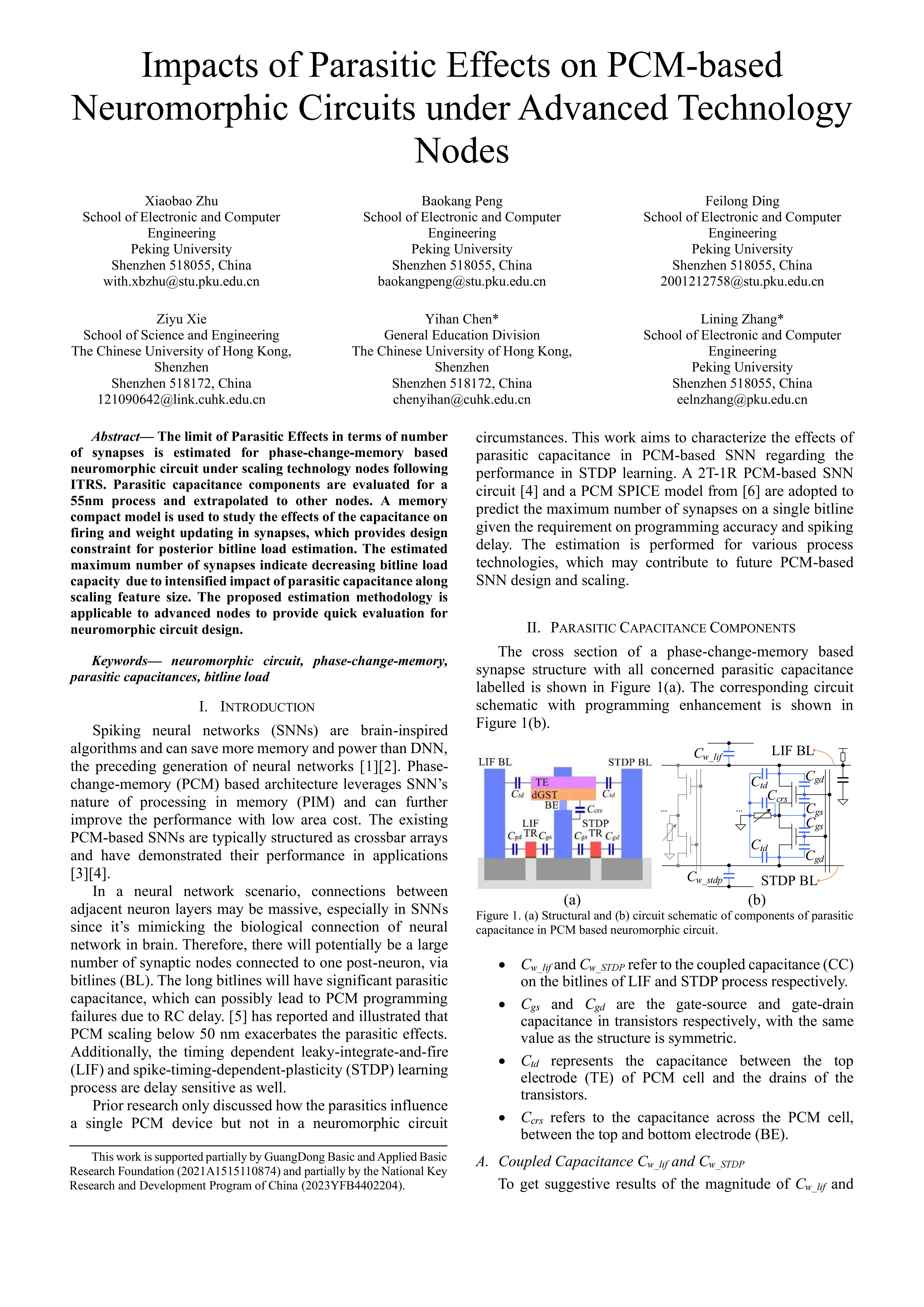Ziyu XIE
Ph.D. Student in Information Engineering
 The Chinese University of Hong Kong (Year of Admin: 2025)
The Chinese University of Hong Kong (Year of Admin: 2025)
Hello, I'm Ziyu (Zeno) XIE, currently a first-year Ph.D. student at The Chinese University of Hong Kong (CUHK), majoring in Information Engineering (IE). I obtained my B.Eng. degree from The Chinese University of Hong Kong, Shenzhen (CUHK-Shenzhen) in August 2025. My academic interests lie in Communication System, Machine Learning, and Artificial Intelligence.

Action required
Problem: The current root path of this site is "baseurl ("_config.yml.
Solution: Please set the
baseurl in _config.yml to "Education Background
-
 The Chinese University of Hong KongThe Faculty of EngineeringAug. 2025 - Present
The Chinese University of Hong KongThe Faculty of EngineeringAug. 2025 - Present-
Ph.D. Student in Information Engineering (IE)
-
-
 The Chinese University of Hong Kong, ShenzhenSchool of Science and Engineering (SSE)Sep. 2021 - Jul. 2025
The Chinese University of Hong Kong, ShenzhenSchool of Science and Engineering (SSE)Sep. 2021 - Jul. 2025-
B.Eng. in Electronic and Information Engineering (EIE)
-
Substream: Computer Engineering (CE)
-
Research Experience
-
 MSFC: Flight Route Coverage Algorithm Based on Mean Shift ClusteringERG4901 SSE Capstone Project - The Chinese University of Hong Kong, ShenzhenSep. 2024 - Dec. 2024
MSFC: Flight Route Coverage Algorithm Based on Mean Shift ClusteringERG4901 SSE Capstone Project - The Chinese University of Hong Kong, ShenzhenSep. 2024 - Dec. 2024-
Developed a mean shift clustering-based algorithm to optimize 5G base station beam configurations, significantly enhancing aerial signal coverage along specified flight routes while reducing energy consumption.
-
-
 Impacts of Parasitic Effects on PCM-based Neuromorphic Circuits Under Advanced Technology NodesResearch Assistant - The Chinese University of Hong Kong, ShenzhenJun. 2022 - Mar. 2024
Impacts of Parasitic Effects on PCM-based Neuromorphic Circuits Under Advanced Technology NodesResearch Assistant - The Chinese University of Hong Kong, ShenzhenJun. 2022 - Mar. 2024-
Estimated and analyzed the impact of parasitic capacitance on the maximum number of synapses in PCM-based neuromorphic circuits under advanced technology node scaling, proposing a methodology for rapid design evaluation.
-
Teaching and Volunteering Experience
-
 Postgraduate Teaching AssistantThe Chinese University of Hong Kong
Postgraduate Teaching AssistantThe Chinese University of Hong Kong-
Teaching Assistant, ENGG1110E (Problem Solving by Programming)Sep. 2025 - Present
-
-
 Undergraduate Student Teaching FellowsThe Chinese University of Hong Kong, Shenzhen
Undergraduate Student Teaching FellowsThe Chinese University of Hong Kong, Shenzhen-
Teaching Assistant, CSC3170 (Database System)Jan. 2025 - May. 2025
-
Teaching Assistant, CSC3150 (Operating System)Jan. 2024 - May. 2024
-
Teaching Assistant, CSC3050 (Computer Architecture)Sep. 2023 - Dec. 2023
-
Teaching Assistant, MAT1008 (Advanced Mathematics)Sep. 2022 - Dec. 2022
-
-
 SSE Student Help Room PreceptorSchool of Science and Engineering - The Chinese University of Hong Kong, Shenzhen
SSE Student Help Room PreceptorSchool of Science and Engineering - The Chinese University of Hong Kong, Shenzhen-
Preceptor for CSC1002 (Python Laboratory)Jan. 2024 - May. 2024
-
Preceptor for CSC1001 (Introduction to Programming Methodology)Sep. 2023 - Dec. 2023
-
-
 OSA Student Journalists AssociationOffice of Student Affairs - The Chinese University of Hong Kong, Shenzhen
OSA Student Journalists AssociationOffice of Student Affairs - The Chinese University of Hong Kong, Shenzhen-
Executive Editor of Website Operations GroupSep. 2023 - May. 2025
-
Senior Editor of Website Operations GroupSep. 2022 - Aug. 2023
-
Art Editor and Website Operator of Website Operations GroupSep. 2021 - Aug. 2022
-
Honors and Awards
-
Honors
-
2025 Outstanding Graduates Award of Muse CollegeApr. 2025
-
2025 SSE Dean's Award for Outstanding GraduatesMay. 2025
-
Master's List Award of Muse College: Whole-Person Development Star - Gold PrizeNov. 2024
-
CUHKSZ, Excellent Student Award in 2024Jan. 2025
-
CUHKSZ, Excellent Student Award in 2023Jan. 2024
-
SSE, Dean's List Award in 2024-25Sep. 2025
-
SSE, Dean's List Award in 2023-24Sep. 2024
-
SSE, Dean's List Award in 2022-23Sep. 2023
-
SSE, Dean's List Award in 2021-22Sep. 2022
-
CUHKSZ, Campus Promotion Talent AwardNov. 2024
-
SDS, Excellent USTF Award, 2nd ClassNov. 2024
-
-
Scholarships
-
CUHK Postgraduate Studentship AwardMay. 2025
-
SSE, AP Scholarship, Class BDec. 2024
-
SSE, AP Scholarship, Class CDec. 2023
-
SSE, AP Scholarship, Class CDec. 2022
-
Muse College, Bowen II ScholarshipSep. 2021
-
-
Competition Awards
-
(2024 USA) Mathematical Contest In Modeling (MCM), Honorable Mention, The Consortium for Mathematics and Its Applications (COMAP)May. 2024
-
(2022) MathorCup Undergraduate Mathematical Modeling Challenge, Second Prize, Chinese Society of Optimization, Overall Planning and Economic MathematicsMar. 2023
-
Selected Publications (view all )

Impacts of Parasitic Effects on PCM-based Neuromorphic Circuits under Advanced Technology Nodes
Xiaobao Zhu, Baokang Peng, Feilong Ding, Ziyu Xie, Yihan Chen#, Lining Zhang# (# corresponding author)
2nd International Symposium of Electronics Design Automation (ISEDA) 2024
The limit of Parasitic Effects in terms of number of synapses is estimated for phase-change-memory based neuromorphic circuit under scaling technology nodes following ITRS. Parasitic capacitance components are evaluated for a 55nm process and extrapolated to other nodes. A memory compact model is used to study the effects of the capacitance on firing and weight updating in synapses, which provides design constraint for posterior bitline load estimation. The estimated maximum number of synapses indicate decreasing bitline load capacity due to intensified impact of parasitic capacitance along scaling feature size. The proposed estimation methodology is applicable to advanced nodes to provide quick evaluation for neuromorphic circuit design.
